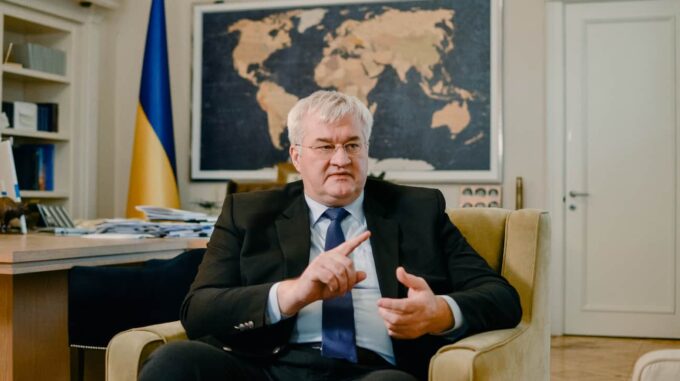Ukraine is ready for negotiations in any format, but only under the condition of a genuine and prolonged ceasefire, which would serve as the first step toward peace

This was stated by Ukraine's Foreign Minister Andrii Sybiha, emphasizing that the government is open to dialogue, but only if the Russian side demonstrates real seriousness and willingness to undertake the difficult path to peace, rather than simply using propagandist and populist statements or fleeting ceasefires to "free up" time for celebratory parades or external illusions. During his speech at V-E Day—an international platform—Andrii Sybiha noted that Ukraine does not refuse diplomacy but will not succumb to Russia’s games, which aim to make the world see only outward eloquence in their actions. "Ukraine once again affirms its readiness for peaceful negotiations in any format, but behind these diplomatic gestures must stand Russia’s genuine readiness for a complex and long path to peace. We will not accept short-lived, populist truces that serve only to create an illusion of stability and hide persistent aggressive intentions," the minister emphasized. When asked about specific conditions for the possible start of negotiations, Sybiha stated that Russia could demonstrate its seriousness by agreeing to a real ceasefire for at least 30 days. This would allow the parties to reduce tension, focus on dialogue, and exchange new diplomatic initiatives. According to him, if Moscow is willing to consider longer time frames, such as a 60- or 90-day ceasefire, Ukraine would be open to such negotiations as well. "Russia must stop only talking about its commitment to peace and instead begin to act: unconditionally agree to a genuine and lasting ceasefire. When the guns finally fall silent, there will be a real opportunity to start negotiations of any format that will facilitate a faster return to peace on Ukrainian soil," concluded the Foreign Minister. Just a few days ago, the Kremlin announced a so-called "ceasefire" in connection with the 80th anniversary of the victory in the Great Patriotic War, which Russians refer to as the Second World War. It is known that the Russian government unilaterally declared a "ceasefire" on this significant day, attempting to show the world its "readiness for peace." Previously, Vladimir Putin announced another "Easter truce," which was supposed to last from the evening of April 19 until midnight on April 21, emphasizing that the occupiers adhered to this mode of ceasefire. The Russian Defense Ministry presented this idea as a gesture of goodwill, contingent on mutual compliance with the regime by Ukraine. However, Ukrainian authorities and military sources reported that, in practice, the so-called "Easter truce" was only a promise, and fighting and shelling did not cease even on the most remote days. In particular, President Volodymyr Zelensky immediately said Ukraine would respond in kind and act accordingly to the situation. He stated that if Russia genuinely seeks peace and halts fire, Kyiv is ready to consider such proposals and continue the ceasefire, but only if there is absolute compliance from both sides. "We are open to dialogue and prepared for a long-term ceasefire, but only if the enemy does not breach it and does not undertake further provocations," he emphasized. However, monitoring data and independent reports, including the DeepState project, confirmed that, in fact, fighting did not stop on most fronts; Ukrainian defenders did not notice signs of a significant "Easter truce," and armed conflicts continued in the most tense sectors. Summing up the situation around the so-called "ceasefires" and diplomatic initiatives by Moscow and Kyiv, it can be concluded that Russia continues to use short-term or unilateral declarations of ceasefire as tools for external political PR and psychological pressure. Ukraine remains firmly committed to starting dialogue only under the condition of a genuine peace, which should be the top priority and a mandatory step in any future negotiations. This again underscores the complexity and confusion of the situation, as well as the high degree of underdeveloped diplomatic and trust-based relations between the warring states.

